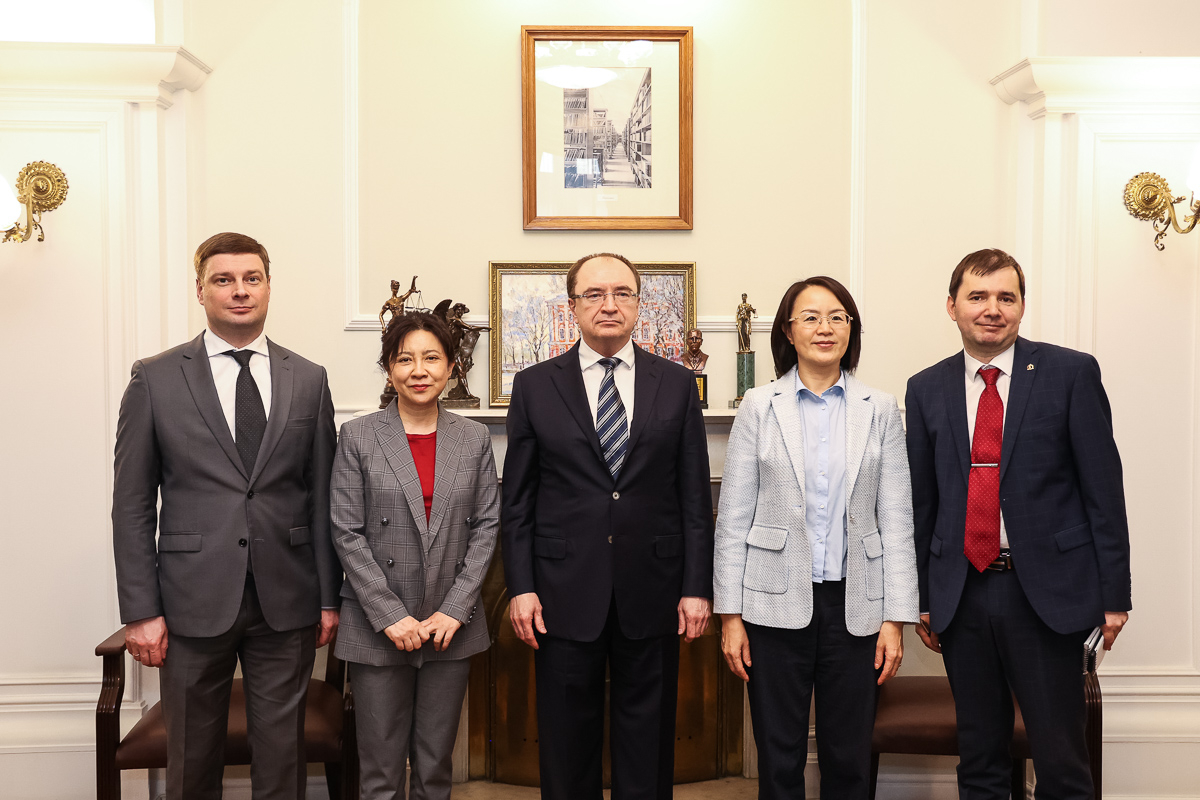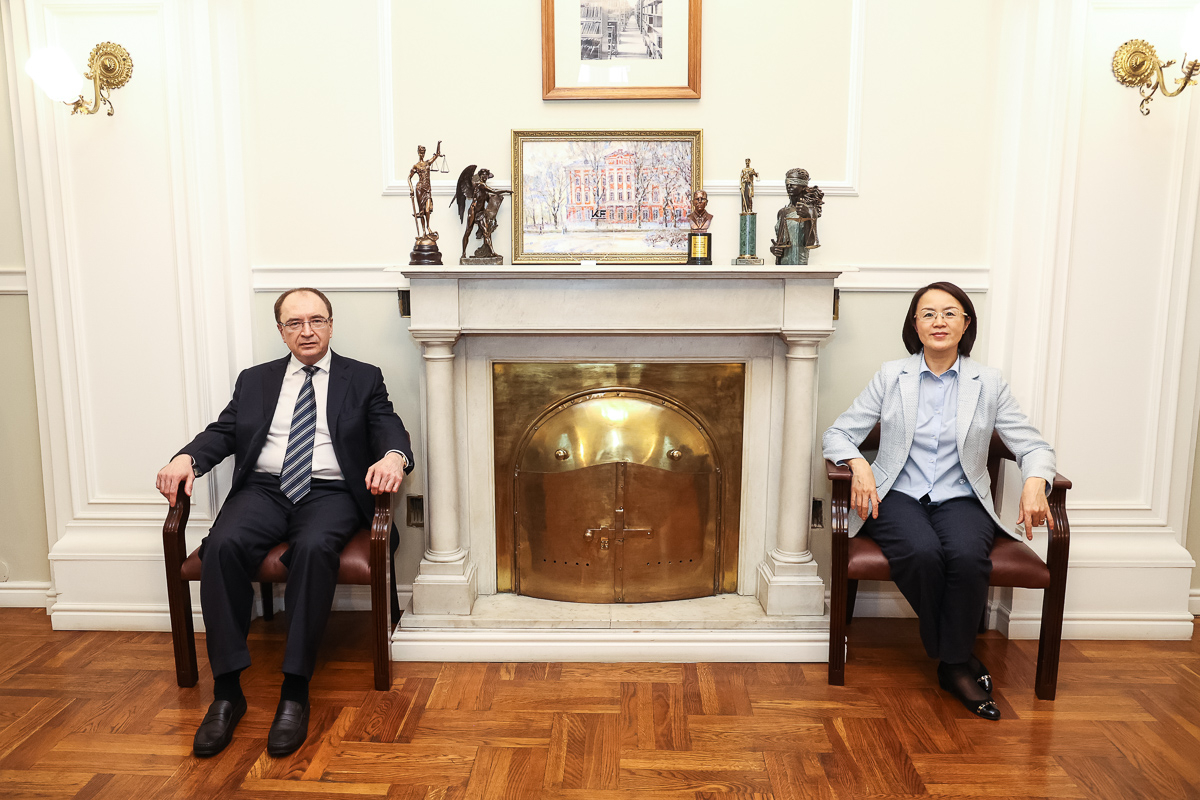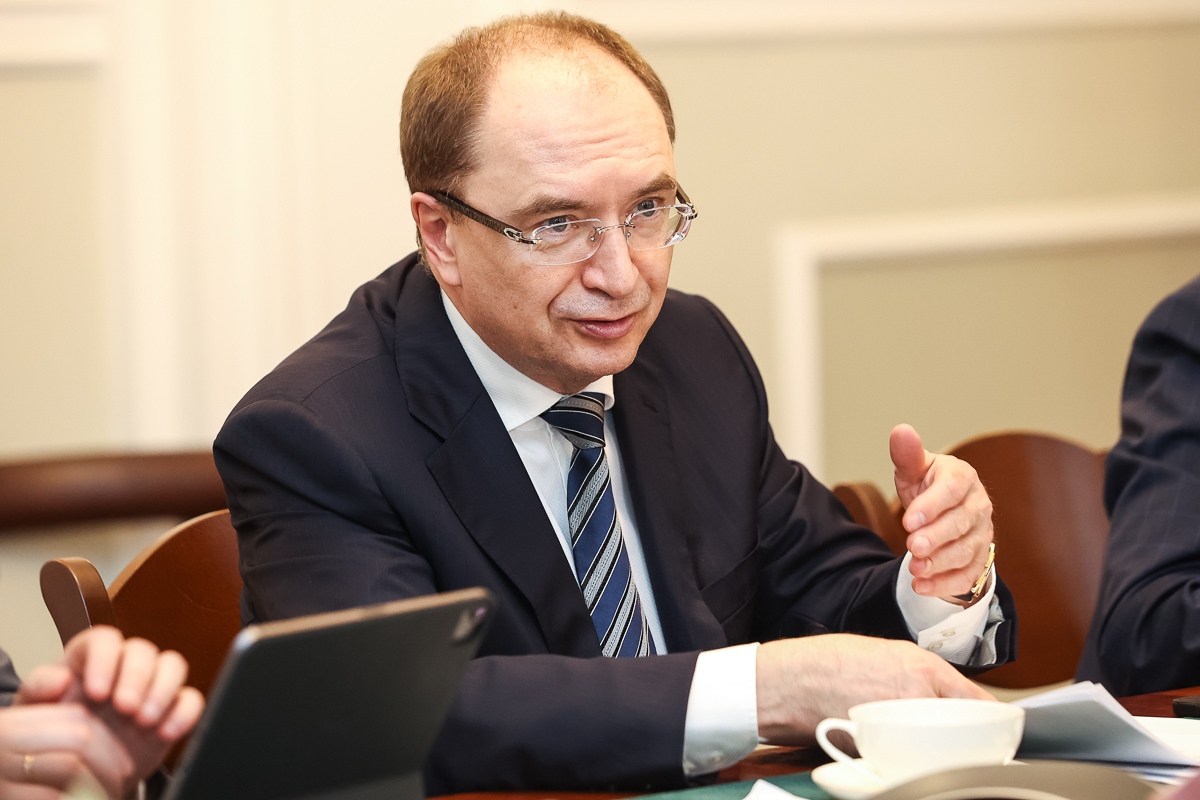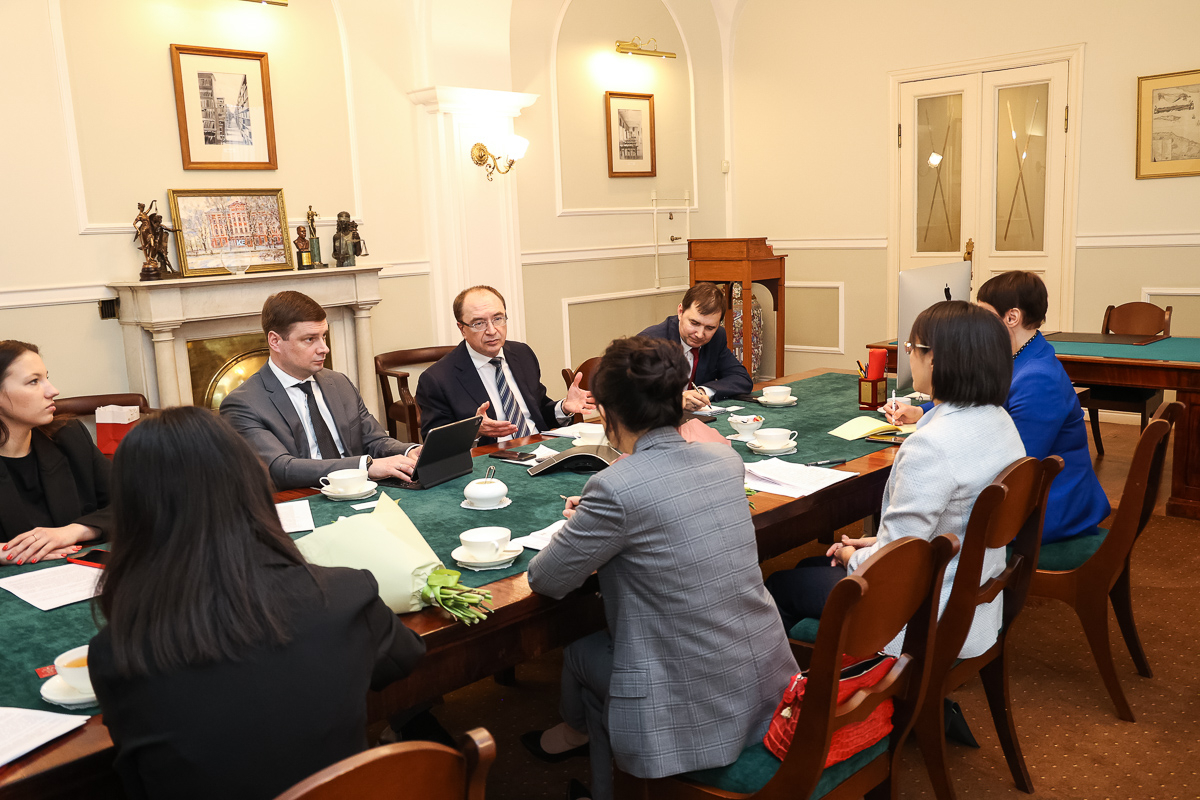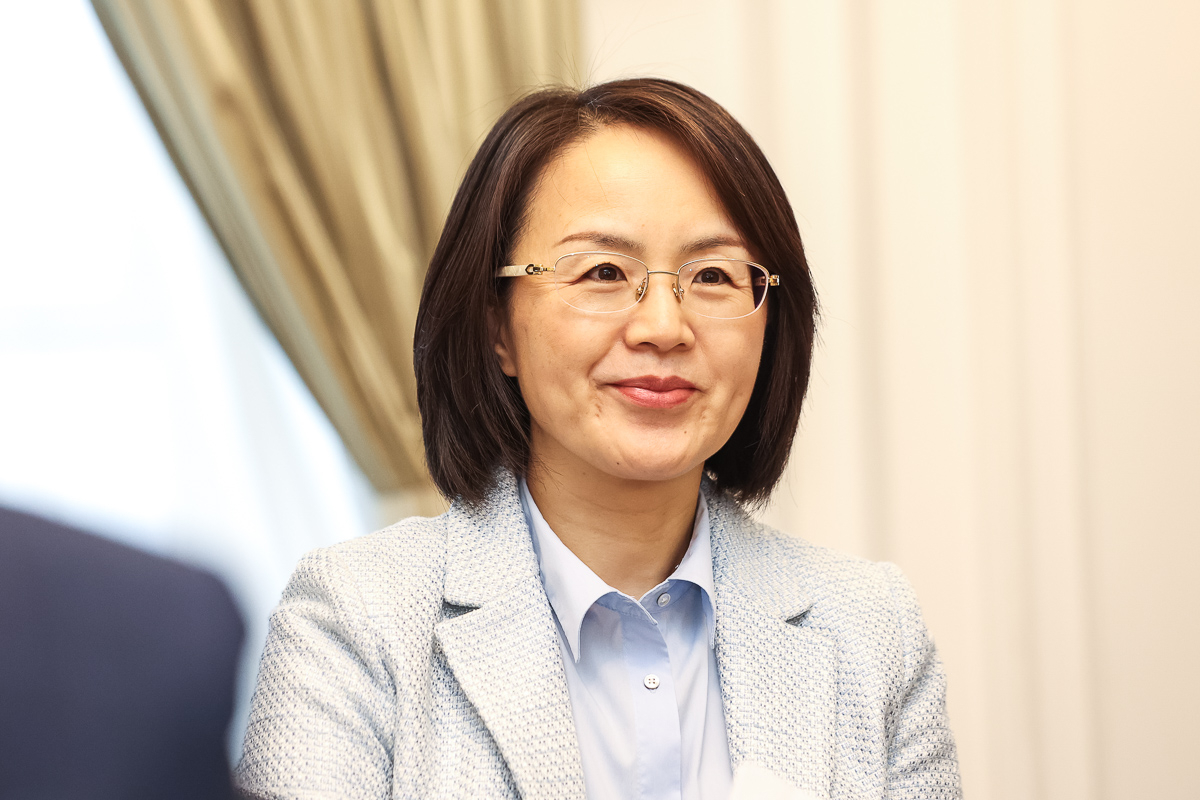Consul General of China Ms Wang Wenli visits St Petersburg University
Nikolay Kropachev, Rector of St Petersburg University Professor, and Ms Wang Wenli, Consul General of the People’s Republic of China in St Petersburg, have discussed the framework for further cooperation and implementation of joint projects and new academic programmes at Chinese universities aimed at studying the Russian language and culture.
Welcoming the guests, Professor Nikolay Kropachev noted the positive momentum in the development of relations between St Petersburg University and the People’s Republic of China. Despite the pandemic-related restrictions, the number of Chinese citizens studying at St Petersburg University is steadily growing. Furthermore, the number of Russian students who want to learn the Chinese language is also increasing. Currently, it is the second most popular foreign language among the University students, ahead of French and German.
Our main aim has been to educate highly-skilled professionals who have acquired knowledge not only in the Chinese language, but also in the economy, international relations, tourism and law of China. We are successfully working in this direction thanks to the active support from our Chinese colleagues.
Professor Nikolay Kropachev, Rector of St Petersburg University
The discussion focused on: expanding cooperation in education and the need for the government agencies’ efforts to inform entrepreneurs about academic programmes that produce graduates who are equipped with a full set of knowledge and skills specifically tailored to meet the needs of Chinese companies.
Professor Kropachev noted that the lack of clear political guidance from the Chinese leadership has substantial implications for the implementation of the University’s academic and research activities. To overcome the circumstances, the Rector of St Petersburg University initiated entering into direct agreements with the largest universities in China. ‘If at least a couple of Chinese universities launched academic programmes similar to those implemented at St Petersburg University, it would become easier to develop international cooperation in various directions through newly created personnel resources — graduates who can work both in China and in Russia,’ explained Professor Kropachev. He also stressed that such efforts will set an example for other Russian educational organisations, which will promote the introduction of new academic programmes aimed at international cooperation.
According to the Federal Agency for the Commonwealth of Independent States Affairs, Compatriots Living Abroad, and International Humanitarian Cooperation (Rossotrudnichestvo), St Petersburg University — for the fifth year in a row — has been leading the list of most popular universities among international applicants, especially among applicants from China. Over the past ten years, the number of students from China has increased almost fivefold. Currently, over 2,300 Chinese citizens are studying at St Petersburg University, while previously their number never exceeded 500 people. Since 2019, the number of academic programmes with a Chinese component has doubled, from 40 to 80. The most popular among them are: "Law with Advanced Studies of Chinese Language and Law"; "Organisation of Tourist Activities (with Advanced Study of the Chinese Language and Tourism)"; and "Economics (with Advanced Studies of the Economy of China and the Chinese Language)".
Strengthening partnerships will open up new opportunities to provide quality education for students. This, however, will require the active participation of the Chinese Consulate in the design and evaluation of academic programmes implemented at St Petersburg University, as well as assistance in the specialist training programmes.
Ms Wang Wenli, Consul General of the People’s Republic of China in St Petersburg, expressed her appreciation to the leadership of St Petersburg University for their contribution to the development of the education system of the two countries and the establishment of new China. Ms Wang confirmed that the People’s Republic of China is currently facing an acute shortage of employees with specialised knowledge of Chinese culture and law. She undertook a commitment to promote the creation of similar academic programmes and a more active involvement of Chinese entrepreneurs in the academic activities of St Petersburg University.
Chinese Consulate in St Petersburg supports St Petersburg University’s constructive approach. Our diplomatic colleagues very often, indeed, have to deal with a shortage of specialists in the field of law. In fact, we are also in need of professionals in the field of criminal law to make our existing cooperation effective.
Ms Wang Wenli, Consul General of the People’s Republic of China in St Petersburg
The Consul General of China also supported the proposal of the Rector of St Petersburg University to include representatives of Chinese companies or relevant ministries in the councils of academic programmes. This will significantly improve the quality of professional education.
In conclusion, Nikolay Kropachev proposed to hold meetings of the Chinese mission with students at the University. He expressed great gratitude for bestowing upon him the highest state award of the People’s Republic of China — the Order of Friendship. ‘I am looking forward to receiving this Order. I am deeply honoured by this recognition. This award will hold a special place in my life,’ shared Nikolay Kropachev.


